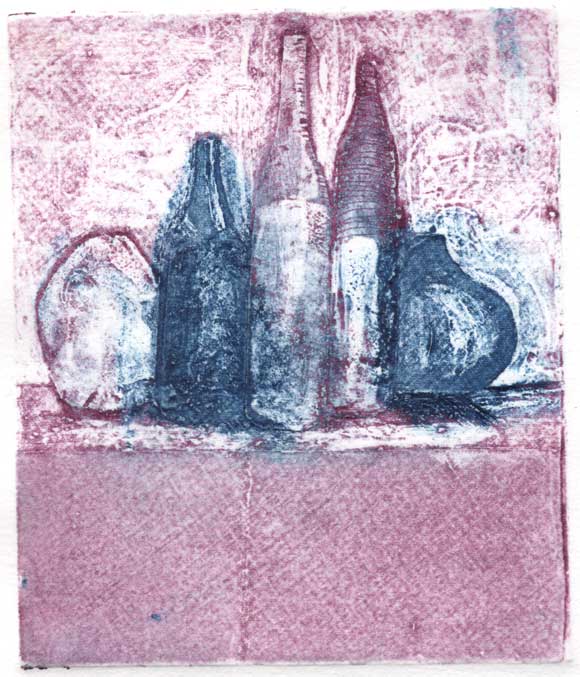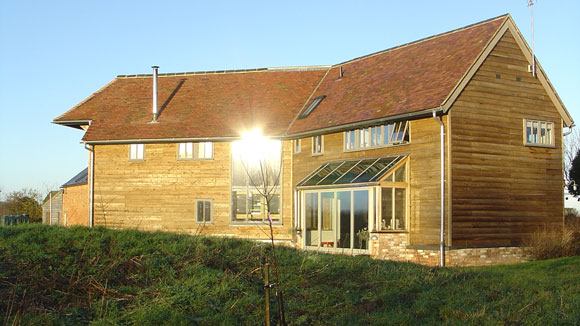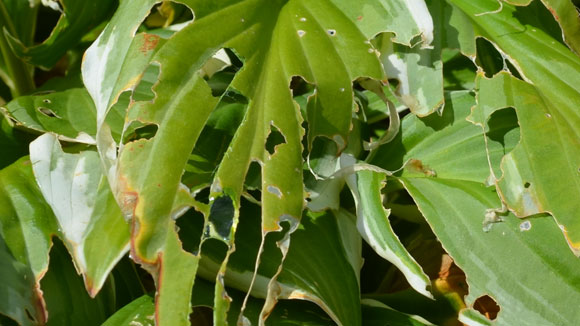As I sip a glass of Cotes du Rhone, I must admit to not wanting to think too deeply about the environmental impact of wine. But I know there are lots factors that contribute to an individual bottle’s wine’s total environmental impact, including growing practices – the water used, pesticides etc, type and size of packaging, and the transportation distance and method. Complex indeed. And to avoid all those bottles needing to be recycled, a wine box seems a far better idea, apart from leading to my over consumption, (far too handy to fill a glass up from the tap on the side!). I’ve also tried the tetra packs that look like cartons of orange juice; but they don’t seem quite right, or pour very well nor do they look good on the table. So I was pleased to hear of the invention by Suffolk based Martin Myerscough, of a paper wine bottle, GreenBottles! Building on the success the company had with it’s paper milk bottle, the revolutionary packaging is made of paper with a thin plastic lining. After use the plastic lining can be removed and the paper outer-casing composted. If they can give the paper bottle the aesthetic appeal of the conventional wine bottle, and the assurance that the plastic lining doesn’t effect the taste, and will result in saving CO2 emissions, it sounds like a Green Choice and I’ll drink to that!
Solar panels to heat the hot tub!
The recent announcement by the government of their intention to cut the rate of Feed-in-tariff for PV solar panels from 43.3p p/kwh to 21p, for people who join the scheme after 12th December 2011, has alarmed many. But let’s face it weall knew a cut to the high tariff was inevitable, it’s the speed and severity that doesn’t make sense; although it may get rid of some of the ‘sharks’ in the industry. What bugs me is why the Government didn’t take a more holistic approach to reducing household energy usage from the start and link insulation improvements and incentives for energy reduction to the scheme. PV solar panels have become an attractive income generator for those with a spare £12K in the bank, but will it change energy usage. You may argue that a attractive financial return is just what was needed to kick start the industry. Saving energy to save cash is great, it doesn’t matter if it’s a green choice or not, but to generate an income, and carry on using energy at the same rate, at the expense of others higher energy bills doesn’t seem fair. It’s when I overheard someone enthusing the virtues of the FiT and solar panels so that they could heat their hot tub that I thought we’d got it wrong. High energy prices make people think about energy usage; feeling that you are getting something for free can lead to waste and that won’t save any carbon. So a combination of financial incentives for energy conservation and energy generation is needed, and the Green Deal is still a year away.
How often should you change your knickers?
My mother once commented to me, “You are either very clean, or very dirty!” as she found our house was always strewn with washing – either dirty; hoping to be ironed; or waiting to be put away! It is probably a bit of both given three children, and one with a liking for mud. But it got me thinking – have our standards changed? Is it no longer acceptable to wear the same T-shirt for a week? A friend recalls, as a child, knickers were only changed every other day! Yet now I know of people who wash their shower towels everyday; and others who can’t bear any dirty laundry around and will use the washing machine three times a day, every day. So given that the average modern washing machine, according to Sust-it’s database of electrical appliances, costs, around 22p per cycle and uses around 55 litres of water, washing too often will certainly be bad for the environment and our pockets. And that would be if everyone had a washing machine less than 10 years old, which they don’t. Plenty of people still have machines that have been going for years, oblivious to the amount of energy they are consuming. So multiplied over the country that adds up to a lot of carbon being emitted not to mention the costs.
So how clean should we be? How often should we change our sheets/towels? I had a very odd discussion once with a distinguished university professor about how he and his wife turned over their bed sheets after two weeks to get more use! Well we all know how wonderful it is to get into a bed with fresh sheets – but how often is it necessary to wash them. There are obviously people with allergies who need to wash their bedding very regularly – but what is normal? And has this changed over the years. What happened in the past with Monday wash days, and no tumble dryers? The size of washing machine drums has grown too, it’s now possible to fit 9kg in some machines. If you have a family and enough clothes to wash in bulk, these machines can work out more economical, but not if they are used to wash just 3.5Kg of washing and are used the same amount of times. I know I usually have too much for my 5kg machine and a bigger drum would cut down on the number of washes. But before we all rush out to stick solar panels on roofs, we should think about how we can do less washing. Although I would always have to have clean knickers – who knows when you might get run over!!
Does fly-tipping and litter annoy you?
Ok there are bigger problems in the world which I care about, but litter annoys me; I have to pick it up (providing I have a glove) and put it in a bin. Frequently it’s drinks cans, McDonalds rubbish or cigarette packets thrown from a car. Worst still is the amount of fly-tipping – sofa’s, washing machines, mattresses with ‘interesting stains’, prams, builders rubble, kitchen sinks, toilets, and ‘hedge’ cuttings (at least they will rot down). Green Choices has recently learnt about an interesting phone app being used in London www.lovecleanlondon.org is helping councils keep on top of the problem. It enables users to photograph offending waste; upload images to the local authority who are then alerted to its location, thus speeding up the clearing up. It would of course be better if the waste wasn’t dumped in the first place, this is not an answer to the problem, but one solution to clearing up the mess.
A successful 2011 Eco open homes event for Forest of Dean
From the snippets I’ve heard from the organisers the first Transition Forest of Dean and Newent Eco open homes event it was a great success. We had a good number of people visit Chapel Farm, with high interest in the ground source heat pump, the recycled materials used, the insulation methods and low-emissivity glass. It was good to be able to share ideas and to hear what others are doing to save money, energy and reduce CO2 emissions. From sheeps wool insulation to recycled tyre tiles; wind turbines to rain water harvesting, self sufficient gardening and PV panels, it is good to see that there is lots of local knowledge.
Eco Open homes Forest of Dean 2011
If you’re around Gloucestershire this weekend, 10/11th September, 28 homes and businesses throughout the Forest of Dean and Newent will be open to the public demonstrating how to save money and CO2 through energy saving design and technologies. This is Transition Forest of Dean and Newent Eco open homes event, part of the Heritage Open Days scheme. As well as seeing Rainwater harvesting systems and self sufficient gardens our own Chapel Farm, in Hartpury, will be open as an example of a new build embracing eco-ideals from the start. You could argue that our greenest option could have been to stay living on site in a caravan! However, given that the existing farmhouse was subsiding due to a combination of the mud stone it was built of, the clay soil and the number of large willow trees in the garden, we wanted to demonstrate that it was possible to build a well designed home, sensitive to it’s locality whilst minimising it’s environmental impact and to strict budget! The part green oak framed Chapel Farm house was built re-using lots of materials from the previous house, is clad in locally produced larch from the Forest of Dean, and designed to maximise solar gain with high insulation values. We have a ground source heat pump and two 1.5 kw wind turbines. In 2007 Chapel Farm was a finalist in the Grand Designs Eco-homes Awards.
Jam tomorrow – Fallen fruit jam maybe?
Has it been a bumper year for plums? It has in our garden with the trees laden with damsons, blaisdons, cherry plums, mirabelles. The thing is, I never seem to get to the fruit before it falls to the ground, and the dog keeps eating the bounty (stones as well), before I can scoop it up for jam. Anyway I think I’ve got enough for a few jars of ‘fallen fruit jam’. Whether I get round to making it remains to be seen! The mirabelles look particularly lovely and are really easy to stone, so there is hope for them. If I’ve got enough – ‘mirabelle vodka’ sounds enticing. And it looks like there is going to be lots of sloes this year too – so sloe gin will no doubt be made, and last years will make a Christmas appearance. The hedges also look laden with blackberries (not ripe yet), but with so little rain earlier in year I wonder how big they will get. I noticed the supermarkets are selling jam jars for jam making (why not just re-use old ones?), and fruit bottling jars, obviously not wanting to miss out on an opportunity to capitalise on the perceived ‘make do and mend’ mentality that is gripping the nation. I even read in Leo Hickman’s column that Tesco sells chicken houses. As my mother-in-laws says “Whatever will they think of next?”.
Nudge, nudge, wink, wink ….
I wonder how much money has been spent by successive governments trying bring about ‘quick-fix’ behavioural change? A lot I imagine. The just published Behaviour Change report by the House Of Lords Science and Technology Sub-Committee, suggests that ‘nudges’ alone won’t work “… changing the behaviour of a population is likely to take time, perhaps a generation or more, and politicians usually look for quick win solutions.”
The same is true on reducing carbon emissions. We can’t rely solely on individuals to sufficiently change their behaviour in order to reverse the impact of climate change. A combination of incentives and regulation, whether we like it or not is needed – look at how reducing the tax on energy efficient cars has stimulated their sale or how ‘feed-in-tariffs’ have suddenly made a lot more people ‘interested’ in solar power. We need ‘nudges’ but the other stuff has to go along in tandem.
Slugs eating hosta’s
Should I give up on growing hostas? The thing is, I like them, but so do slugs and snails! I don’t like using slug pellets because of the consequences of the nasty chemicals, so my hosta’s look good for a while and then end up chewed and tattered. I have tried lots of things – crushed egg shells around the base, coffee grounds, copper coins, Vaseline around pots, and picking the blighters off by hand. We have quite a few blackbirds and thrushes who visit, but no hedgehogs to act as natural predators. Any suggestions welcome! Organic gardening offers lots of challenges, but I’m not prepared to introduce lots of chemicals into the garden, or to spend hours watering stuff.
Walking coast to coast
Having spent the weekend accompanying a friend on her challenge of walking Wainwrights 190 mile coast to coast route. (I walked a mere 14 miles!), I was struck by several things, – firstly what a fantastic achievement it is for her, after recovering from breast cancer, and, secondly, what a vital role walkers and cyclists have in supporting the rural economy. Many B&B’s are supported, throughout the year, by a steady stream of ‘one nighters’ on a mission! My friend used a combination of hostels and B&B, and local pubs and, when in civilisation, the local shops. And when her backpack, got too much – the services of a local luggage courier service. Toursim is vital to our national parks, but getting the balance right and keeping these unique places ‘special’, capable of meeting our competing demands is a real challenge. Taking a holiday in the UK has so much to offer and it helps our economy too. And my friend raised over £1000 for the charity Maggies, which provides support for people affected by cancer, their families, carers and friends to empower people to live with, through and beyond cancer.



